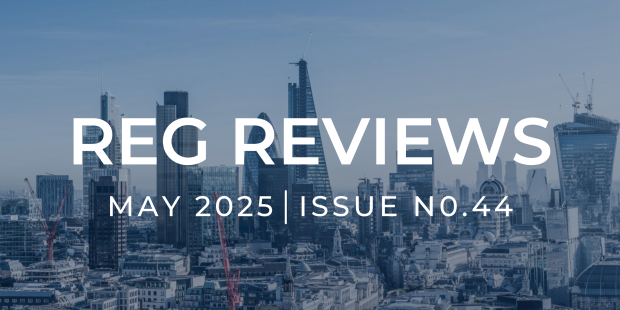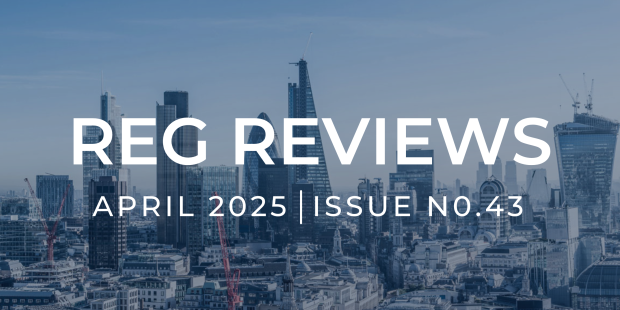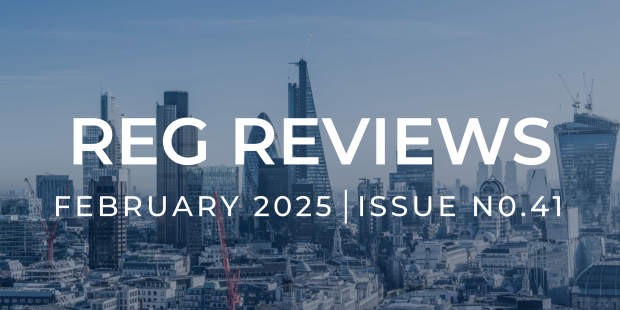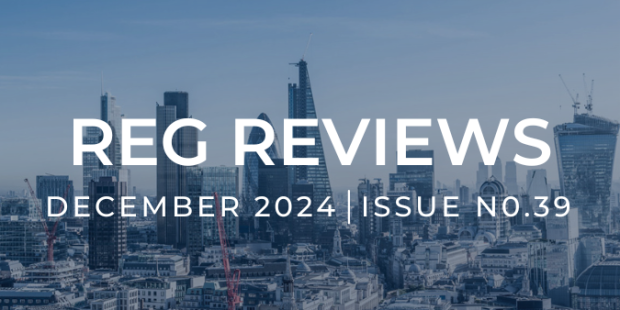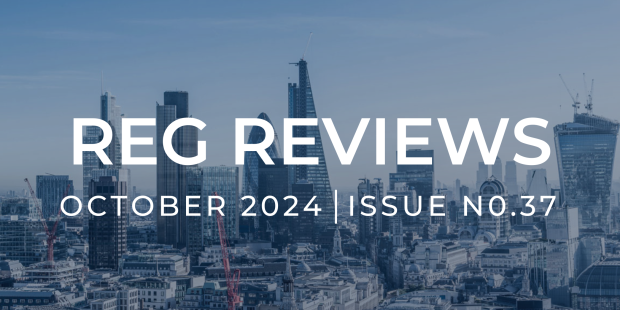The RegTech landscape is evolving — fast. This year’s Global RegTech Summit on 20th May made one thing abundantly clear: RegTech has crossed the threshold from compliance facilitator to strategic enabler. Across panels and roundtables, financial services leaders echoed a common message — the role of technology in managing regulatory complexity, counterparty risk, and operational efficiency has never been more vital.
REG’s Zoë Parsons, Marketing Manager, Victoria Slade, Head of Sales and Sandra Simões, Head of Product represented REG at the Summit and shared their five biggest takeaways of trends shaping the future of RegTech in 2025:
1. RegTech Is Now a Strategic Necessity
Forget “nice to have.” RegTech is now seen as a foundational component of resilient, responsive financial services. As geopolitical instability reshapes risk and compliance priorities, firms are leaning into intelligent technology to stay agile. One panelist from Starling Bank summed it up: “Firms simply can’t do their jobs without it.”
2. Customer Experience Is the New ROI
It’s not just about reducing costs — it’s about building trust. Faster onboarding, clearer regulatory reporting, and seamless collaboration are driving value in ways that traditional ROI metrics can’t capture alone. For forward-thinking financial institutions, RegTech delivers more than compliance — it improves relationships, loyalty, and transparency.
3. Collaboration Is the Future of Compliance
Whether it’s between regulators and firms, vendors and clients, or across departments within an organisation, the need for more open, collaborative approaches is gaining traction. Regulatory bodies are warming to vendor engagement, and firms are seeking solutions that unify efforts across functions and jurisdictions. Standardisation, shared understanding, and cross-vendor integration were recurring themes.
4. AI Moves from Buzzword to Business Utility
Artificial intelligence is making tangible inroads into regulatory change management. Leading providers are deploying AI to power horizon scanning, contradiction management, and even real-time communication oversight. It’s a signal of where the market is heading — toward predictive, explainable, and highly actionable RegTech that enables proactive compliance rather than reactive firefighting.
5. Fit Beats Features in Vendor Selection
Buyers aren’t just shopping for tools — they’re looking for partners. Panels repeatedly stressed the importance of trust, accessibility, and shared language. Vendors that speak the language of risk, understand sector-specific pressures, and work collaboratively across the business will win out over those with standalone features or overly technical propositions.
Sandra Simões also participated in a roundtable discussion on “Collaboration for Regulatory Change Management,” hosted by Janet Chenery of RegTech NZ. The session reinforced the message that the financial services industry must collaborate more effectively to standardise regulatory processes and solutions.
A key theme was the lack of a unified regulatory approach across borders, which forces firms to spend disproportionate time and resources on maintaining compliance — often at the expense of innovation and customer experience. The group highlighted how Nordic countries are leading by example, with greater alignment across their financial systems that allows faster, more efficient access to industry data.
However, the discussion also acknowledged cultural and competitive barriers. Information-sharing is still seen as risky, with many firms reluctant to collaborate due to fears of exposing commercial advantage.
Despite this, there was strong consensus that greater standardisation and openness could unlock major benefits — enabling firms to redirect focus from box-ticking exercises to creating real value for customers through better, smarter solutions.
The message from the summit was loud and clear: RegTech is central to the future of financial services — and its value goes far beyond regulatory box-ticking.
As regulatory frameworks grow more complex, and expectations for transparency and customer centricity rise, the demand is not just for tools that do, but for platforms that understand, connect, and guide. Solutions that can make sense of the noise, surface what matters, and do so in a way that feels intuitive and strategic, are leading the pack.
2025 marks the start of a new chapter — where RegTech isn’t just about efficiency, but about confidence, clarity, and competitive edge.


















